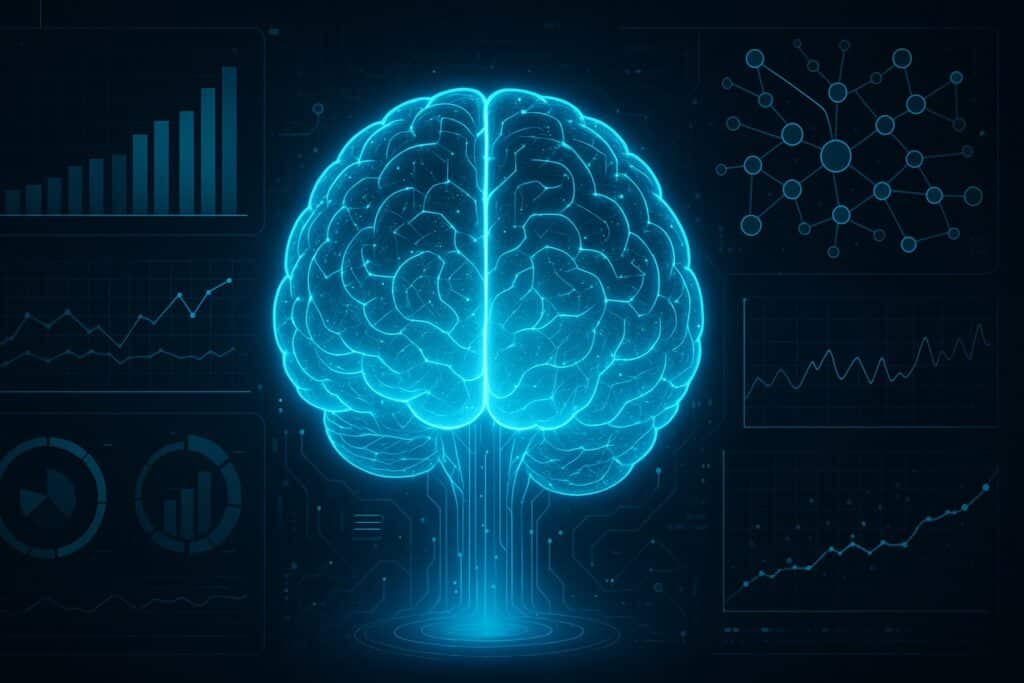The Artificial Intelligence Revolution – Impact and Industry Trends
Artificial intelligence (AI) has rapidly become integral to businesses and society, driving innovation across sectors. According to industry surveys, nearly four out of five organizations worldwide are using or experimenting with AI. For example, a McKinsey report found 78% of organizations now use AI in at least one business function, up sharply from just 55% two years earlier. AI is most commonly applied in IT, marketing/sales and operations, automating tasks like data analysis, customer service, and supply-chain management.
AI’s economic impact is also soaring. A 2025 market study estimates the global AI industry at about $391 billion, with a projected compound annual growth rate of nearly 36% through 2030. By 2030 the AI market could reach $1.8 trillion as adoption broadens across finance, healthcare, manufacturing and more. Organizations report that mature AI deployments deliver significant gains: top companies see 15–30% improvements in productivity and customer satisfaction from AI-enabled workflows.
Generative AI, powered by large language and image models, has led recent advances. Tools like ChatGPT and DALL·E enable automated content creation, design, and coding. A 2024 survey found 71% of companies regularly use generative AI in at least one function, up from 65% earlier that year. These models not only generate text and images, but increasingly assist with data analysis and decision-making. For example, AI programs can draft reports, generate marketing copy, or even write portions of software code on demand.
Along with growth, AI raises new challenges. Researchers note concerns over bias, data privacy and “hallucinations” (AI confidently presenting false information). Open-source AI and cloud services are mitigating some risks by providing clearer data provenance. Regulatory bodies worldwide are beginning to set frameworks for AI safety. Importantly, over half of global citizens (56%) believe AI will positively transform their lives in the next decade, underscoring broad optimism about AI’s promise.
Looking ahead, experts predict continued AI integration. Advances in hardware and algorithms will enable more powerful models, possibly moving toward artificial general intelligence (AGI). Companies are investing in AI “agents” (automated assistants) across departments – for example, AI copilots for coding and writing are already emerging in software tools. As one expert put it, organizations “now see AI as a required layer” in many products.

Key Takeaways: AI adoption has surged globally, with most companies using AI in some way. The generative AI revolution (ChatGPT-style models) is a major driver of productivity gains. The global AI market is booming, projected to grow from ~$391B today to nearly $2T by 2030 Businesses and governments are working to address ethical and safety challenges as AI becomes ubiquitous.
Future Outlook
Beyond immediate productivity gains, the AI revolution is shaping entire ecosystems of innovation. Startups and enterprises alike are building AI-first products, from automated research assistants to intelligent healthcare diagnostics. Governments are prioritizing AI strategies, investing in education and infrastructure to remain competitive in the global tech race. At the same time, cross-industry collaborations are emerging, combining AI with fields like robotics, biotech, and energy to tackle pressing challenges such as climate change and sustainability. These developments highlight that AI is not just a standalone tool—it is becoming the connective tissue linking industries, ideas, and global progress.
📝 Conclusion
The artificial intelligence revolution is no longer a futuristic vision—it’s a present reality reshaping industries, economies, and daily life. With generative AI accelerating productivity gains and market growth projected to reach trillions, businesses that strategically integrate AI will lead the next decade. Yet, success depends not only on adoption but also on responsible governance, transparency, and addressing ethical concerns. As AI continues to evolve, it is poised to become a foundational layer of innovation—driving both opportunities and responsibilities for organizations and societies worldwide.
Further Reading
- The State of AI Report 2025 – https://www.stateof.ai
- McKinsey Global AI Survey – https://www.mckinsey.com
- OECD AI Policy Observatory – https://oecd.ai
- Stanford AI Index Report – https://aiindex.stanford.edu
